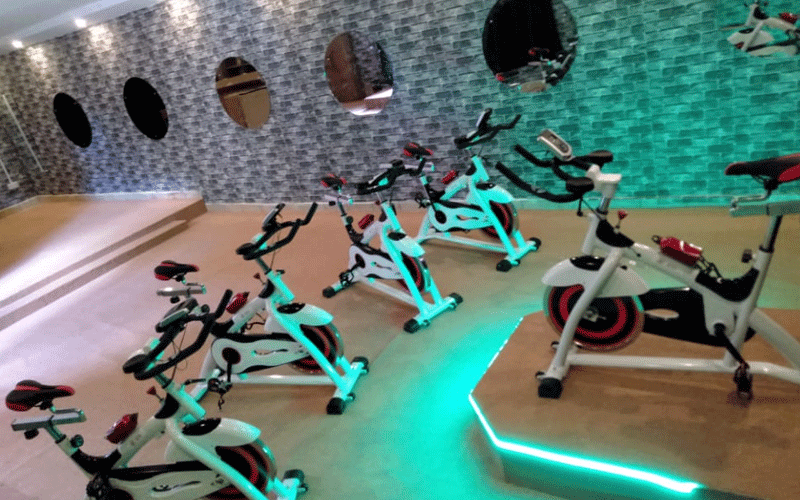How I spun my way into a fitness business

After enjoying the benefits of spin class, JOY GITHINJI decided to share it with others with her new studio. She tells Harriet James all about it.
Consumer preference, described as the type of workout clients want is the main factor driving the fitness industry in Kenya.
While there are many who look for the traditional modes of working out, others want a specific regimen such as say cycling.
Noticing that there were few cycling studios in the country against an increased interest in indoor cycling, Joy Githinji set up Abbe Indoor Cycling Studio to provide high intensity interval training and spin lessons as well as personal training, dance classes to Kenyans who want to cut down their calories.
Indoor cycling or spinning is a form of exercise that focuses on endurance, strength and high intensity race days.
It also entails using a special stationary exercise bicycle with a weighted flywheel in a setting that looks more of a classroom.
“One of the long known benefits of spinning is that it assists in decreasing fat and losing weight.
Two 30-minute sessions of high intensity workout is capable of building cardiovascular endurance, strength and makes your brain release those endorphins because of high energy music and cheers.
It’s a community, people compete for fun, and they cheer during the sessions,” explains Joy.
Intense exercises
While a stationary bike is used in both a gym and indoor cycling workout, there are a few differences between the two.
First, bikes used in spinning classes are more challenging than those of a regular gym, with the exercises even more intense.
One also requires a more intense instructor, whose instruction they follow during the lessons, which in turn, translates to a challenging workout.

Trainers can also add in a few dumbbells to make it more intense and to work on the upper body. The lighting of the studio also varies.
“Spinning is supposed to make you feel like you’re partying, so the lighting is dark and neon lighting is used to distract clients.
It’s meant to be fun. Sometimes when you work out at your own pace, you can fall victim to laziness or boredom.
You may not push yourself as hard as you can, or you may become distracted by the television, a magazine or a conversation with a friend.
An organised class might force you to discipline yourself, and you will have the support of others around you to further fuel your motivation,” she says.
Starting out
Having suffered from depression and later on diagnosed with bipolar II in 2018, Joy turned to exercises as an effective way of coping.
The effects of depression made her feel isolated from her friends and she had to take an academic leave from university because it was all overwhelming.
“So, with bipolar you get these waves of mood swings. You’re either 0 or 100. On my good days I used to do some YouTube workouts and dance.
It helped me relieve so much tension and I decided I could make it long term. I started as a freelance dance instructor,” she says.
Having seen the difference it made in her life, Joy felt the need to spread awareness on mental health and help people with similar conditions through this.
In 2018, she took a course in fitness and training, worked for a while and then set up her own studio.
One of challenge she faced was finding capital for her business, but luckily her parents chipped in.
She also faced the challenge of finding the best location, where she could access the clients who wanted to exercise and use the equipment.
She settled for the green leafy suburb of Karen for her studio. A new challenge she also grappled with was finding clients, especially with the pandemic.
“A few clients transitioned to virtual training and that is how we’ve been training during the lockdown.
There are few clients who need on-site training, so I’m currently training a maximum of four clients per session and observing Ministry of Health guidelines on social distancing and sanitisation, which is done before and after every session,” she adds.
Based on the current statistics on people suffering from depression, other mental illness and spike in suicide cases, Joy plans to assist as many people as she can to overcome the challenges through exercises.
She desires to partner up with organisations and hospitals with this kind of business to be treated as part of therapy.
In addition, the mental health activist hopes to expand her business not just in Nairobi but in other counties.












